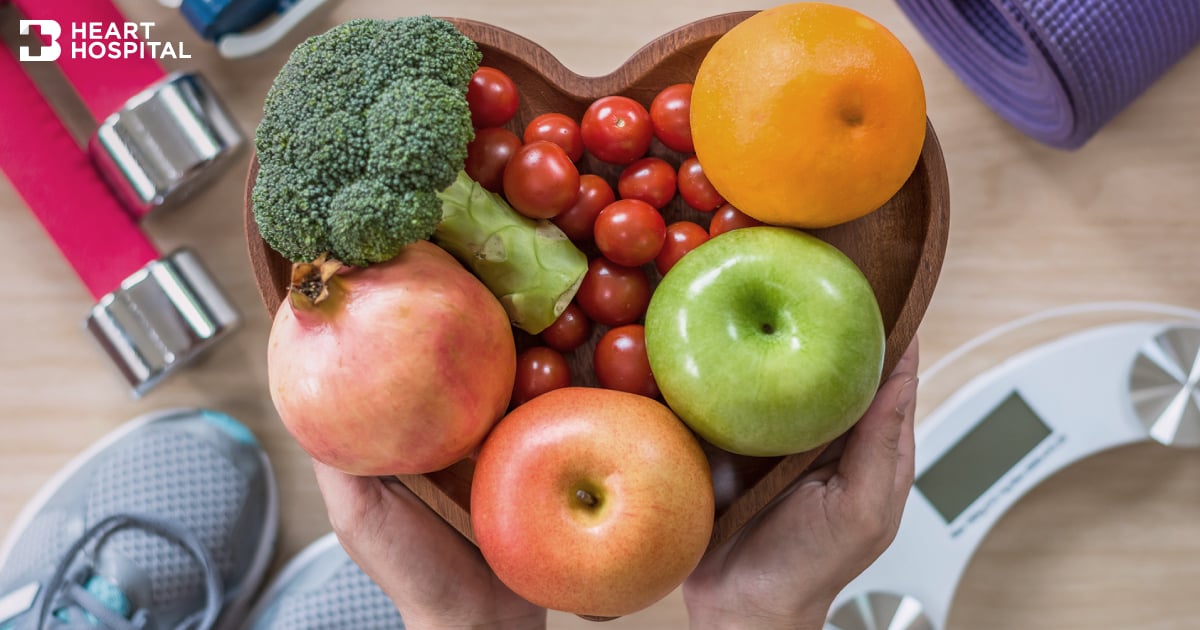
6 Vegetables And Fruits For Your Healthy Heart
Some types of cholesterol are essential to perform important functions such as producing hormones and building cells. Nevertheless, excessive cholesterol can develop fatty deposits in blood vessels, leading to other serious health problems. In a similar way as blood pressure, if blood pressure is too high, known as hypertension, it becomes a major contributing cause of fatal conditions such as cardiovascular diseaseand cerebrovascular disease e.g. stroke. To remain healthy, lifestyle modification plays a crucial role. Particular vegetables and fruits are a vital part of a heart-healthy diet. They can substantially reduce lipid absorption and lower blood pressure, eventually results in reduced risks of developing heart disease. Vegetables and fruits those help controlling cholesterol and blood pressure include:

1) Garlic
Garlic contains a substance, called “allicin”. Allicin is considered the major biologically active component of garlic which is produced when garlic is crushed or chopped. Not only offering antioxidant benefits, but allicin also helps reducing cholesterol absorption from gastrointestinal tract into bloodstream. In addition, allicin exhibits antiplatelet effects, thus it reduces platelet aggregations resulting in less formation of a thrombus (clot) when blood vessels are inflamed or injured. However, allicin is usually found in fresh garlic. Taking allicin in dietary supplement form requires medical consultation prior to administration.

2. Water morning glory or water spinach
Water morning glory contains antioxidants and minerals such as iron, calcium, magnesium as well as potassium. Potassium helps to lower blood pressure by balancing out the negative effects of salt. Patients with hypertension are recommended to regularly consume water morning glory. However, potassium-rich vegetable like water morning glory is not advised for patients with chronic kidney disease since high level of potassium aggravates the progression of kidney failure. Per portion of 100 grams , water morning glory provides 22 calories and 312 mg. of potassium

3. Tomato
Tomatoes are high in lycopene and vitamin A which are powerfully nutritious, providing antioxidant and an-inflammatory effects. The absorption of nutrients from tomatoes is greater from cooked tomatoes than fresh tomatoes, since cooking breaks down the tomato cell matrix and makes the carotenoids more available. Addition of oil during cooking greatly increases the absorption of vitamin A, a group of fat-soluble compounds highly important for health.

4. Onion
Onion is a source of “phonolic compounds” which provide antioxidant and anti-inflammatory properties. Phenolic compounds also help to reduce risk of developing atherosclerosis which leads to blood vessel stenosis or occlusion. Besides these beneficial effects, it also helps lowering cholesterol level. Interestingly, medical researches conducted in the US have revealed that phenolic compounds can additionally increase level of High-Density Lipoprotein or HDL, referred to “good” cholesterol that picks up excess cholesterol in the blood and takes it back to the liver where it is broken down.

5. Guava
Guava is one of the richest sources of dietary fiber and vitamin C with antioxidant effects. Dietary fiber obtained from guava can reduce the absorption of cholesterol from intestine while enhancing cholesterol excretion in feces. Thus, to get the recommended amount of dietary fiber, fresh guava is recommended instead of guava juice.

6. Apple
Apples are relatively high in fiber, both soluble fiber and insoluble fiber. Apples contain several antioxidant substances such as phenolic compounds and flavonoids, especially in the apple peels. Apples with high dietary fiber helps to lower the cholesterol absorption from the digestive tract, resulting in the reduced risks of developing cholesterol-related diseases such as coronary artery disease. Consumption of apple with peels is recommended to obtain its maximum benefits.
Besides consuming healthy vegetables and fruits those considerably help to reduce blood pressure and cholesterol level, lifestyle modification also plays a major role. To reduce possible risk of developing heart diseases, it is highly recommended to have healthy diet and sufficient rest as well as appropriate and regular exercise. More importantly, annual health checkups and heart screening are essential in order to detect any abnormalities as soon as possible. Early diagnosis greatly contributes to timely and effective treatments.



Leave a Reply
You must be logged in to post a comment.